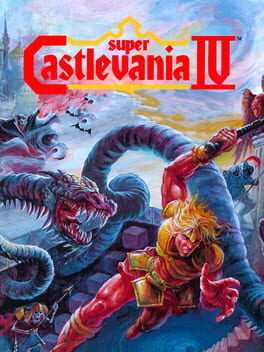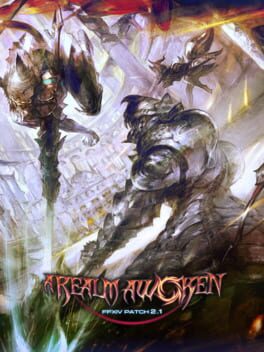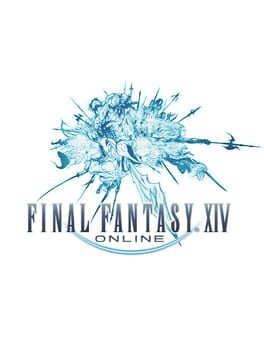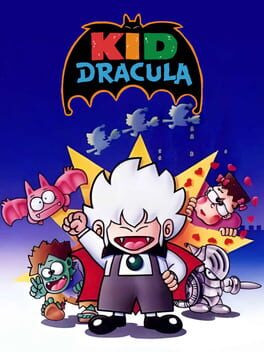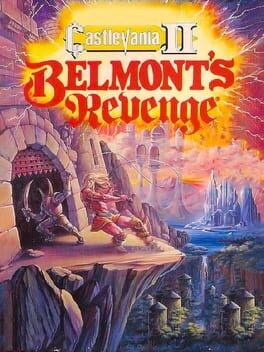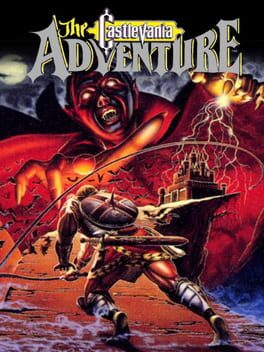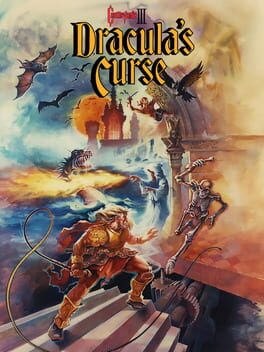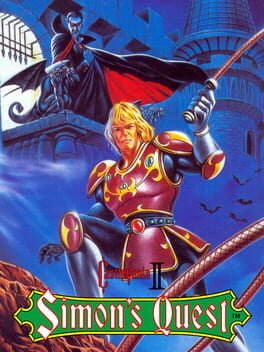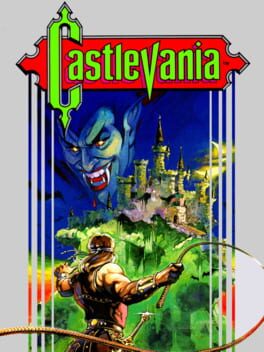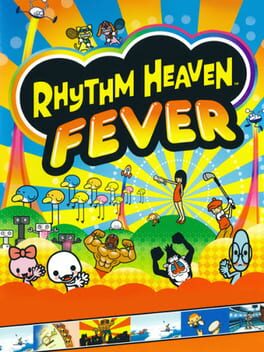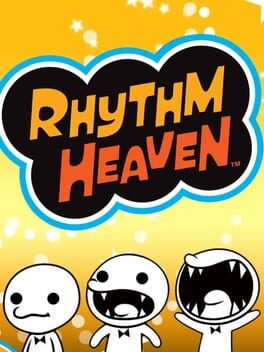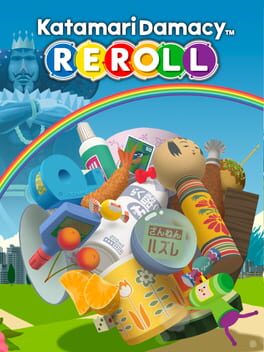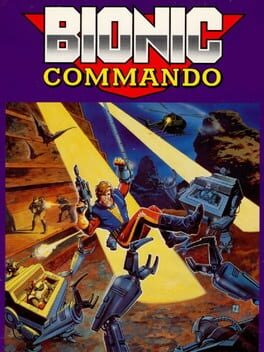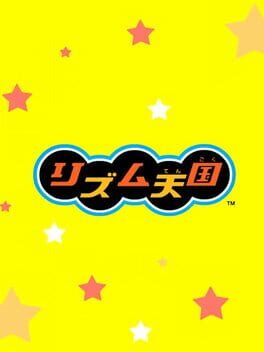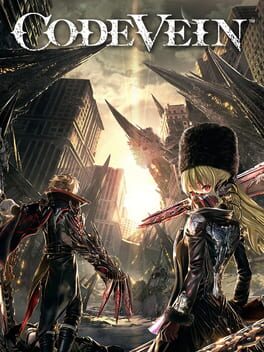Kempocat
BACKER
1991
A cool game but on a replay I really started feeling as if this took on the role of being a somewhat awkward middle ground between the two extremes of the more linear games in the series. A lot of the changes to how Simon controls that make him feel "less clunky" take away a lot of the appeal of the games for me. He doesn't feel as if he's got as much weight behind his actions as the characters from the previous entries in the series, which also serves to take something away from the requirement to very carefully consider your next move, now that you can adjust what you do so much easier. This on its own isn't inherently negative, after all, quite a few of the later games feel as if they play out by having 2 unspeakably powerful forces constantly clash, but in this case, a lot of the design still feels stuck in the trappings of the NES era of the series, only now without Simon having a moveset that complements it all too well.
This is most clear with the additional directions you can now use the whip essentially trivialising the subweapons in 90% of cases, shifting their role from something to complement your capabilities and make a lot of situations easier if you knew what you were doing, to a case where occasionally you'll just throw a knife to hit an enemy slightly far away to change things up slightly. The one way that this has been very nicely implemented into things is the way that each stage seems to have moved away from being shorter gauntlets of death into these long winded endurance test where each time you get hit feels meaningful because everything feels as if it's going on forever. I think it's a neat enough way to approach things, making each hit taken feel more punishing to balance out the fact that it's easier to avoid damage. It works really well for the first 2 thirds of the game as well, and helps provide a greater sense of scale to everything as you're making your way to Dracula through locations that feel utterly endless in places.
This side of things do end up falling apart a bit towards the end though, with the level design starting to throw more cheap deaths at the player, while further increasing the stage length, leading to a situation where getting blindsided sends you back frustratingly far. This is exacerbated by the fact that despite supposedly being a far less clunky game than its predecessors, this is the one game where I feel as if there had been moments of me actively fighting controls, particularly with stair climbing feeling far weirder and less trustworthy. Despite all of my complaining, the game's still pretty good, especially in terms of its presentation. Everything is so maximalist, it feels as if it's excited to be on more powerful hardware and to push that as far as possible, with all kinds of cool visual effects (most notably that one rotating circular hallway) and just go all out in creating a set of really cool, varied environments to walk through. I similarly like the enemy and boss designs visually, still utilising a lot of that classic gothic horror iconography, but in greater detail and having some neat new enemies that would become mainstays in the series (I love Slogra's design a lot). Basically, even if it doesn't always play great, it's one of those games that's still pretty fun to just immerse yourself in, even if it's not quite the well-oiled machine that the first game is.
This is most clear with the additional directions you can now use the whip essentially trivialising the subweapons in 90% of cases, shifting their role from something to complement your capabilities and make a lot of situations easier if you knew what you were doing, to a case where occasionally you'll just throw a knife to hit an enemy slightly far away to change things up slightly. The one way that this has been very nicely implemented into things is the way that each stage seems to have moved away from being shorter gauntlets of death into these long winded endurance test where each time you get hit feels meaningful because everything feels as if it's going on forever. I think it's a neat enough way to approach things, making each hit taken feel more punishing to balance out the fact that it's easier to avoid damage. It works really well for the first 2 thirds of the game as well, and helps provide a greater sense of scale to everything as you're making your way to Dracula through locations that feel utterly endless in places.
This side of things do end up falling apart a bit towards the end though, with the level design starting to throw more cheap deaths at the player, while further increasing the stage length, leading to a situation where getting blindsided sends you back frustratingly far. This is exacerbated by the fact that despite supposedly being a far less clunky game than its predecessors, this is the one game where I feel as if there had been moments of me actively fighting controls, particularly with stair climbing feeling far weirder and less trustworthy. Despite all of my complaining, the game's still pretty good, especially in terms of its presentation. Everything is so maximalist, it feels as if it's excited to be on more powerful hardware and to push that as far as possible, with all kinds of cool visual effects (most notably that one rotating circular hallway) and just go all out in creating a set of really cool, varied environments to walk through. I similarly like the enemy and boss designs visually, still utilising a lot of that classic gothic horror iconography, but in greater detail and having some neat new enemies that would become mainstays in the series (I love Slogra's design a lot). Basically, even if it doesn't always play great, it's one of those games that's still pretty fun to just immerse yourself in, even if it's not quite the well-oiled machine that the first game is.
From what I've seen, it seems that the ARR campaign of FFXIV is considered as basically an extended tutorial/prologue that puts a lot of pieces in place for the later, far better parts of the game, which has me excited because what is here is already pretty solid stuff! I was particularly fond of the way it was so easy to just mess around with the different classes in the game without much in the way of a penalty beyond the time taken to level that class up, with a lot of systems in place to make that experimentation relatively painless. The story content had its ups and downs here for sure however, lots of very slow, aimless content near the start where nothing feels as if it's happening and while some of that is remedied by how pretty the scenery is, it's still dull, especially since a lot of it takes place before you actually get enough combat abilities for things to feel interesting.
Fortunately, things do get interesting towards the end once the pieces are in place and things actually start moving, with everything that takes place after the Coerthas storyline being full of cool setpieces and a steady sense of progression that culminates in the final hour and a half being especially great in this regard. The dungeons do an especially great job at keeping things interesting, with the way they quickly morph into a frenetic dash through waves upon waves of enemies being fun to deal with, especially with a group of friends all working together to make their way through these cooperative dungeon crawls. By the end of the campaign, I can safely say that I'm incredibly interested to see where stuff goes from here.
Also, I get to run around as a catboy in a dress so it's just inherently a good game.
Fortunately, things do get interesting towards the end once the pieces are in place and things actually start moving, with everything that takes place after the Coerthas storyline being full of cool setpieces and a steady sense of progression that culminates in the final hour and a half being especially great in this regard. The dungeons do an especially great job at keeping things interesting, with the way they quickly morph into a frenetic dash through waves upon waves of enemies being fun to deal with, especially with a group of friends all working together to make their way through these cooperative dungeon crawls. By the end of the campaign, I can safely say that I'm incredibly interested to see where stuff goes from here.
Also, I get to run around as a catboy in a dress so it's just inherently a good game.
1990
Plays like a worse Megaman game without the same level of impressive visual flair, nor the tight responsive controls, also, the level design is worse, and the music is nothing to write home about. The special abilities you get at the end of each stage are also pretty uninteresting or annoying for the most part, nothing particularly fun or interesting to be seen there, making unlocking new stuff at the end of each stage feel like a massive non-event. The last few levels also get really stupid, with so many instakills that are borderline unreactable and being laggy to the point where it doesn't feel like there's any guarantee about whether your inputs will actually have you move and jump as far and high as you want, further ruining an already frustrating experience,
When looking at certain rough games, you can often hear people talking about how "there was a good game buried in here somewhere, the execution just lets it down", Castlevania: The Adventure actually does have this, and it's called Belmont's Revenge. This game basically reads to me as a take on Castlevania: The Adventure, but the devs had a better handle on how to utilise the Gameboy hardware, and also expanded upon its interesting ideas instead of just leaving them behind after using them once. So many of the concepts from The Adventure appear here but just in forms that feel so much better to play with. Your whip still can be downgraded, but only from certain enemy attacks instead of from all sources of damage, taking a frustrating mechanic and tweaking it into something that makes certain enemies feel extremely threatening instead. The rope climbing is far more prevalent and varied in how it's used, creating some nice verticality to some of the stages, and you can even manoeuvre better on them as well, really bringing some of the stages to life and giving the game some identity without sacrificing its playability in the process.
The level design in general is pretty neat, really feeling like the strongest approximation of this series you could get on a handheld, and while your movement still feels comically slow, it's at least responsive now, and it feels very feasible to react to things instead of it seeming like you need to plan every move 80 years in advance, and the scrolling doesn't hurt my eyes this time around. The last couple of stages definitely bring back a bit of the frustration unfortunately, lots of cheap deaths abound, with the boss fights in this section feeling especially unwieldy to actually go up against. Still a cool game though, I liked it more this time around for sure as well.
The level design in general is pretty neat, really feeling like the strongest approximation of this series you could get on a handheld, and while your movement still feels comically slow, it's at least responsive now, and it feels very feasible to react to things instead of it seeming like you need to plan every move 80 years in advance, and the scrolling doesn't hurt my eyes this time around. The last couple of stages definitely bring back a bit of the frustration unfortunately, lots of cheap deaths abound, with the boss fights in this section feeling especially unwieldy to actually go up against. Still a cool game though, I liked it more this time around for sure as well.
This game still sucks, but it does so a bit less than I thought it did on my first time through. The first level in particular does a great job at encapsulating a lot of what one could expect a handheld Castlevania to be, with the limited art still being enough to capture a bit of atmosphere and paint a vivid enough scene of your surroundings, everything feeling very methodical. I also think that Battle of the Holy is a fantastic first track that I wish had slightly greater presence in the series as a whole, as even though it's definitely on the lower end in terms of my favourite first stage themes in these games, but when you see the competition, that's not really anything too scathing to say that.
My previous issues with the game still hold true through, everything is sluggish to a painful degree and doing anything in the slightest feels as if the Gameboy is moments away from catching fire from how much it ends up lagging, and the way the screen scrolls is nauseating at the best of times. Frustrating level design all around post-level 2 as well, with autoscrollers and instakill spikes abound that really remind you just how miserable it feels to control Christopher Belmont here. I'd like to say that this will be my last time playing this, but my brainrot towards this series raises the genuine possibility that I'll end up playing it again, so no guarantees there.
My previous issues with the game still hold true through, everything is sluggish to a painful degree and doing anything in the slightest feels as if the Gameboy is moments away from catching fire from how much it ends up lagging, and the way the screen scrolls is nauseating at the best of times. Frustrating level design all around post-level 2 as well, with autoscrollers and instakill spikes abound that really remind you just how miserable it feels to control Christopher Belmont here. I'd like to say that this will be my last time playing this, but my brainrot towards this series raises the genuine possibility that I'll end up playing it again, so no guarantees there.
A bigger, more ambitious game than Castlevania 1, with a much wider variety of challenges, split paths and extra characters for a decent amount of replayability, and some truly amazing art for the NES. It's also a far worse game than Castlevania 1. It's no secret that Dracula's Curse is the most difficult of the OG trilogy, and in this case, I'd say the game suffers for it pretty harshly. There's nothing inherently wrong with the game being as tough as it is, the problem is that the ways in which it's difficult throws out a lot of the finer details of level design that made Castlevania 1 so engaging and instead repeatedly throws the player into awkward situations that don't quite feel like they were made with the intent of being able to get out unscathed even if you knew what to do.
There's a much greater focus on sections that require a more reflex heavy style of play that doesn't quite mesh with the intentionally sluggish movement of your character, with there being multiple sections that feel as intense as the axe thrower hallway in CV1 without the telegraphing that made it feel fair still. This gets particularly egregious when put up against certain obstacles like the falling block tower or the multiple sections that have the player climb up a ton of stairs while getting pelted with fireballs, using your relative lack of mobility as a way to get cheap shots in, rather than encourage a more carefully considered approach to whatever situation you find yourself in. The fact that the game is like this specifically because they were trying to make sure that people couldn't beat the entire game within a couple of days to encourage buying instead of renting leaves an especially bad taste in my mouth, because it really does compromise the experience as a whole. There's enough good here for me to have still mostly enjoyed my time with Castlevania III however, as there is a good variety of genuinely clever sections, and the music and atmosphere is fantastic as usual, I just wish it wasn't so frustrating.
There's a much greater focus on sections that require a more reflex heavy style of play that doesn't quite mesh with the intentionally sluggish movement of your character, with there being multiple sections that feel as intense as the axe thrower hallway in CV1 without the telegraphing that made it feel fair still. This gets particularly egregious when put up against certain obstacles like the falling block tower or the multiple sections that have the player climb up a ton of stairs while getting pelted with fireballs, using your relative lack of mobility as a way to get cheap shots in, rather than encourage a more carefully considered approach to whatever situation you find yourself in. The fact that the game is like this specifically because they were trying to make sure that people couldn't beat the entire game within a couple of days to encourage buying instead of renting leaves an especially bad taste in my mouth, because it really does compromise the experience as a whole. There's enough good here for me to have still mostly enjoyed my time with Castlevania III however, as there is a good variety of genuinely clever sections, and the music and atmosphere is fantastic as usual, I just wish it wasn't so frustrating.
I really did try with this one, I played through the entire game again and everything, but in the end I just do not find this an experience that I enjoyed or really found particularly engaging. This time the big thing I noticed was that both the best and worst aspects of the game stood out and affected me far more, but a lot of those more interesting elements ultimately just made me wish that the game as a whole was something I vibed with more. I appreciate weird left turns that happen before certain bits and pieces of a series' identity have been fully established, when they still exist in a strange, uncertain middle ground where expectations cannot yet be set in stone and there's a degree of malleability in what goes on. In a perfect world, this sort of freer approach to creation even within more well-established series would be more common, (though admittedly, Castlevania is pretty good with this), but I'll take what I can get and find appreciation in these types of games for existing even if I personally don't enjoy some of those individual titles.
In the case of Simon's Quest, I love the different type of hostility that the game utilises, where the biggest obstacle in Simon's path stems from the villagers' hatred towards him and their desire to hinder his goals, rather than the big scary monsters. Almost all the difficulty from this game stems from information on how to proceed being difficult to pin down, obscured by the vagueness and misinformation of what all those around you provide (something that was present even before the rough translation), with having to parse what is important information and what is meant to entirely throw you off, being led astray as often as being guided in the right direction. The main issue with this for me stems from the fact that the path forward is often so obtuse that it cheapens the experience when it feels as if there would be no way of figuring things out without extremely specific information provided, with trial and error only realistically being able to take you so far.
It also feels like the game is made in such a way to trip you up in ways that almost exclusively waste your time, such as the orb traders automatically swapping orbs upon talking to them, or losing your entire supply of hearts if you run out of lives, not really adding an interesting challenge and more creating new ways to waste your time. The mazelike layouts of the mansions have a similar negative effect on me, so much time just being spent walking around, dreary mansions trying to work out where to go and hoping that you find the stake merchant before finding the end. The limited danger you feel in most situations is both a blessing and a curse, but during these mansion sections, I'm far more inclined to say that the latter applies.
That said, the atmosphere felt by having all of these adversaries being nothing more than remnants of what was once a powerful evil attempting to claw their way back from death is very striking in certain regards, especially from the bosses, none of which are even vaguely threatening, but as such, they ultimately end up being the most potent example of how the journey Simon takes on this time is more of a preventative measure as opposed to an active threat that's ravaging the land. This is also what makes the final dungeon's emptiness the crowning moment in the game as a whole, because to me, that feeling of emptiness is where the game thrives. Conceptually I love this game, I really do, but even after writing out what I strongly praise about the game, I just find the experience to be a bit miserable.
In the case of Simon's Quest, I love the different type of hostility that the game utilises, where the biggest obstacle in Simon's path stems from the villagers' hatred towards him and their desire to hinder his goals, rather than the big scary monsters. Almost all the difficulty from this game stems from information on how to proceed being difficult to pin down, obscured by the vagueness and misinformation of what all those around you provide (something that was present even before the rough translation), with having to parse what is important information and what is meant to entirely throw you off, being led astray as often as being guided in the right direction. The main issue with this for me stems from the fact that the path forward is often so obtuse that it cheapens the experience when it feels as if there would be no way of figuring things out without extremely specific information provided, with trial and error only realistically being able to take you so far.
It also feels like the game is made in such a way to trip you up in ways that almost exclusively waste your time, such as the orb traders automatically swapping orbs upon talking to them, or losing your entire supply of hearts if you run out of lives, not really adding an interesting challenge and more creating new ways to waste your time. The mazelike layouts of the mansions have a similar negative effect on me, so much time just being spent walking around, dreary mansions trying to work out where to go and hoping that you find the stake merchant before finding the end. The limited danger you feel in most situations is both a blessing and a curse, but during these mansion sections, I'm far more inclined to say that the latter applies.
That said, the atmosphere felt by having all of these adversaries being nothing more than remnants of what was once a powerful evil attempting to claw their way back from death is very striking in certain regards, especially from the bosses, none of which are even vaguely threatening, but as such, they ultimately end up being the most potent example of how the journey Simon takes on this time is more of a preventative measure as opposed to an active threat that's ravaging the land. This is also what makes the final dungeon's emptiness the crowning moment in the game as a whole, because to me, that feeling of emptiness is where the game thrives. Conceptually I love this game, I really do, but even after writing out what I strongly praise about the game, I just find the experience to be a bit miserable.
1986
The first Castlevania is basically as cool as people say, it's an awesome melting pot of horror imagery, it's one of the most atmospheric games on the NES, the music is deservedly iconic, it's just a great time overall. One especially interesting thing however, is the way that it utilises its feelings of clunkiness to enhance the experience and force the player to use more of their tools, with those subweapons feeling just as integral to being able to overcome obstacles as your whip. So many instances have an air of uncertainty because of the rigid and slow way that Simon controls, you can't really just react on the fly and expect things to work out for you, you need that moment of planning and anticipation, which serves to make every threat feel even more formidable.
The way limited lives are handled here is actually pretty interesting as well, since it ties quite cleanly into the way that each set of 3 levels can allow the player to build up a sense of momentum and power, with certain subweapons early on in each section often being very useful later. Rather than losing your lives and having to go back to the start of the last set of 3 levels being a purely negative thing, the fact that this can give the player another opportunity at taking the subweapons they want and even making them stronger, softens the blow a bit. This is accentuated by the whip mechanic basically forcing the player to master certain sections due to their considerably worse weapon if they lose a life. This results in the next time you have to go through being far, far smoother due to now likely being at full whip strength and range, making many challenges more digestible in the process. My only real complaints with this one is that the final set of levels drops the ball a bit, especially with the clock tower being a bit of an ugly mess that can be hard to discern where you're actually meant to go, the enemy spam doesn't help either. Great game nonetheless, one of the best on the system
The way limited lives are handled here is actually pretty interesting as well, since it ties quite cleanly into the way that each set of 3 levels can allow the player to build up a sense of momentum and power, with certain subweapons early on in each section often being very useful later. Rather than losing your lives and having to go back to the start of the last set of 3 levels being a purely negative thing, the fact that this can give the player another opportunity at taking the subweapons they want and even making them stronger, softens the blow a bit. This is accentuated by the whip mechanic basically forcing the player to master certain sections due to their considerably worse weapon if they lose a life. This results in the next time you have to go through being far, far smoother due to now likely being at full whip strength and range, making many challenges more digestible in the process. My only real complaints with this one is that the final set of levels drops the ball a bit, especially with the clock tower being a bit of an ugly mess that can be hard to discern where you're actually meant to go, the enemy spam doesn't help either. Great game nonetheless, one of the best on the system
2011
Whatever slightly less positive things I could say about Rhythm Heaven Fever are completely overshadowed by the fact that this is one of the greatest games ever. Sure, I'm not enamoured with the idea of creating a more consistent artstyle instead of just throwing a lot of disparate ideas at the wall, but when everything looks as cute as it does here, I can't complain at all really. Everything that appears to be that tiny bit less interesting to me compared to previous entries ends up not mattering when it feels like so much else has been taken further. The outlandish concepts for the minigames have somehow become even more ridiculous and charming, the way a player's sense of rhythm is messed with feels both more intuitive than ever before while also throwing some really interesting curveballs your way that are sure to catch you off guard even after having played the games before it, and the music is once again fantastic. Basically an ideal game, I need another 17 entries in this series and I need them immediately.
2008
Takes a lot of the greatness of Rhythm Tengoku and amps it up a bit for me, making for a game that I find equally as delightful as that one, but without a lot of the little caveats that prevented me from feeling outright adoration towards everything it did. The biggest glow up for me is the way that a lot more of these minigames feel structured towards playing along with the music rather than Tengoku often finding itself in this slightly strange position where I felt more like I was responding and reacting to split second musical cues within any given track. It essentially led to an experience that felt far more intuitive and natural to follow from moment to moment, with the bits that did lean into making the player react to something incredibly quick/memorise what's coming up feel more in line with a playful switch up as opposed to the core approach that was taken.
I felt that this was most apparent with the way that my failures in this were primarily execution errors based on losing the flow of a song momentarily, rather than being blindsided by something that was a bit too fast for me to comfortably hit without already having such knowledge in advance. My favourite change to how the game plays however, is the tactility that gets added thanks to the tap and flick controls that this takes on, as opposed to just button presses. So many basic actions immediately feel much more impactful when accompanied by the layers upon layers of feedback that's usually associated with hitting such cues, and adds a lot of appeal to some games that I otherwise feel I wouldn't care as much about, not to mention whenever it has something a bit more unique here and there, like the bottle shaking in love labs. While not all of the remixes are great, still having a few too many moments where it's just basic interactions strung together, there are a few of them that are absolutely fantastic both musically and how it messes with the cues to make for some incredibly cool, clever moments that feel good even after you've gone through and done them a bunch of times. One of the coolest DS games that happens to also use the hardware in one of my favourite ways, essential gaming.
I felt that this was most apparent with the way that my failures in this were primarily execution errors based on losing the flow of a song momentarily, rather than being blindsided by something that was a bit too fast for me to comfortably hit without already having such knowledge in advance. My favourite change to how the game plays however, is the tactility that gets added thanks to the tap and flick controls that this takes on, as opposed to just button presses. So many basic actions immediately feel much more impactful when accompanied by the layers upon layers of feedback that's usually associated with hitting such cues, and adds a lot of appeal to some games that I otherwise feel I wouldn't care as much about, not to mention whenever it has something a bit more unique here and there, like the bottle shaking in love labs. While not all of the remixes are great, still having a few too many moments where it's just basic interactions strung together, there are a few of them that are absolutely fantastic both musically and how it messes with the cues to make for some incredibly cool, clever moments that feel good even after you've gone through and done them a bunch of times. One of the coolest DS games that happens to also use the hardware in one of my favourite ways, essential gaming.
I don't think I've encountered a game before where I've loved how it feels to move and control as much as this one. There's this perfect amount of friction and imprecision to it all, whether it's from rolling down a hill and not being strong enough to push the katamari back up, collecting a bunch of stuff and becoming too large to be able to manoeuvre your way back in the same smooth way, or even just the way that you become progressively more unwieldy the larger you get, there's a lot of fantastic nuance to how it feels to play the game. This especially serves to make each level feel engaging in how you approach it from start to finish, with your growing size frequently recontextualising pieces of the scenery, especially since the game just, isn't afraid to have those moments where it absolutely sucks to move through somewhere. I love this for the way it gives the environment a somewhat more natural feel to it despite the scattershot madness that it can embody, as if it's this whole little world that you're trespassing into and messing with as opposed to a world that feels created with the purpose and expectation of guiding this giant clump of assorted objects to destroy everything.
What makes all of this even more impressive however, is that despite this, there's almost not a single moment where this game isn't an absolute joy to play. A lot of this comes from the presentation I think, both the visuals and audio. I appreciate the absurdity of how the environment is constructed having so many strange, entirely disparate elements being slapped together and then playing it off as if it's just another regular day, as people go about their business watching polar bears sing and walking their elephants down the street. Love the character designs too, there are few things that are as cute as the prince or as playfully cursed looking as the king of the cosmos, and the random civilians on Earth are pretty funny as well with their square heads and exaggerated features.
The audio is great as well, especially with how weighty it sounds in the right scenarios, with each collision feeling like an absolutely catastrophic setback because of this, even when you're losing about 3 seconds of progress at most. The absolute chaos that the game embodies when you've got a lot of sound effects playing at once as you're rolling over a large group of objects is another highlight in this regard, since there's something that just doesn't get old about hearing a bunch of people and animals screaming at once while the cheerful background music blares. The soundtrack is one of the best ever as well and I will hear no arguments on this (not that there seem to be many anyway since it seems like a common enough take), basically every game would be improved with the inclusion of Lonely Rolling Star.
On the whole this is just one of the most delightful games I've played, with the one drawback being that I did find some of the later stages to be a biiiiit repetitive since it starts using the same big environments over and over, so I feel that even just one more place that was introduced near the end would've helped keep up a sense of variety, but even so, I see myself playing this game a lot when I'm just looking for something cozy to put on for a bit.
What makes all of this even more impressive however, is that despite this, there's almost not a single moment where this game isn't an absolute joy to play. A lot of this comes from the presentation I think, both the visuals and audio. I appreciate the absurdity of how the environment is constructed having so many strange, entirely disparate elements being slapped together and then playing it off as if it's just another regular day, as people go about their business watching polar bears sing and walking their elephants down the street. Love the character designs too, there are few things that are as cute as the prince or as playfully cursed looking as the king of the cosmos, and the random civilians on Earth are pretty funny as well with their square heads and exaggerated features.
The audio is great as well, especially with how weighty it sounds in the right scenarios, with each collision feeling like an absolutely catastrophic setback because of this, even when you're losing about 3 seconds of progress at most. The absolute chaos that the game embodies when you've got a lot of sound effects playing at once as you're rolling over a large group of objects is another highlight in this regard, since there's something that just doesn't get old about hearing a bunch of people and animals screaming at once while the cheerful background music blares. The soundtrack is one of the best ever as well and I will hear no arguments on this (not that there seem to be many anyway since it seems like a common enough take), basically every game would be improved with the inclusion of Lonely Rolling Star.
On the whole this is just one of the most delightful games I've played, with the one drawback being that I did find some of the later stages to be a biiiiit repetitive since it starts using the same big environments over and over, so I feel that even just one more place that was introduced near the end would've helped keep up a sense of variety, but even so, I see myself playing this game a lot when I'm just looking for something cozy to put on for a bit.
1988
A very clever, creative 2D platformer that does a lot with its unconventional controls. I've seen a few people say that if you could just jump normally that it would make things easier and better but I don't really get that point, since the game is literally designed around its unique control scheme and is integral to its pseudo-puzzle platforming level layouts. I'm particularly fond of the way that not being able to immediately jump feels almost like an evolution to the intentionally sluggish controls of Castlevania, where there's just as much importance placed on strategic positioning and planning as there is on just executing everything well after the fact.
There's also some pretty great variety to the level design as well, with the elements of verticality especially playing well into the grappling mechanics and leading to a lot of surprisingly fast paced, tense moments in between the more meticulous planning. Not really a fan of gaining more max hp by grinding though, feels like a very odd thing to implement in a 2D action platformer that makes the balancing feel off from level to level and is also just, very tedious to properly play with. The lives system along with a few purely inconvenient elements, such as needing to have certain colours of communicators to even access the terminals, leading to some pretty pointless trial end error, further contribute to making the experience feel quite rough in certain regards, with the end game being especially nasty. Even so, I still had a good time, might be one I feel a bit more patient towards when I let it sit with me for a while as well. At the very least, it felt like a bit of fresh air even if it still obviously played into a lot of the conventions that would be typical for this type of game.
There's also some pretty great variety to the level design as well, with the elements of verticality especially playing well into the grappling mechanics and leading to a lot of surprisingly fast paced, tense moments in between the more meticulous planning. Not really a fan of gaining more max hp by grinding though, feels like a very odd thing to implement in a 2D action platformer that makes the balancing feel off from level to level and is also just, very tedious to properly play with. The lives system along with a few purely inconvenient elements, such as needing to have certain colours of communicators to even access the terminals, leading to some pretty pointless trial end error, further contribute to making the experience feel quite rough in certain regards, with the end game being especially nasty. Even so, I still had a good time, might be one I feel a bit more patient towards when I let it sit with me for a while as well. At the very least, it felt like a bit of fresh air even if it still obviously played into a lot of the conventions that would be typical for this type of game.
2006
Nintendo SPD really moved up in the world with this game, going from making games that were 3 seconds long with Warioware, to games here often lasting around an entire minute, really crazy stuff! Rhythm Tengoku is one of the most delightful and in certain ways, impressive games I've seen on the GBA as well. Basically every moment of this is full of life as it takes you through this eclectic journey of rhythmically timed button presses, having the fun artstyle of "throw everything at the wall with reckless abandon" and cleverly using its visuals as both a means to guide and distract the player in a lot of minigames, really emphasising the requirement to get into the flow of each track.
There's a lot that gets done with the controls being as simple as they are as well, as while technically a lot of them could boil down to just pressing A at the right time, the way it's framed makes each scenario feel meaningfully different and exciting. While the rhythm in this honestly does feel a bit less engrained in every facet of the experience when put alongside other games in the series, frequently acting almost as something playing off background music cues rather than the rhythm of the piece itself, it still does a pretty great job for the most part. I mainly bring this up because there were a lot more moments that felt purely reactive rather than something I felt was intuitive to get on the first couple of runs of these minigames, feeling like I just needed to practice and memorise a lot more compared to the sequel on the DS, where those moments felt far less frequent and were often telegraphed far more in advance. This game having failure so often tied to just not knowing or remembering what's coming up is the one thing that hurts this game a bit for me, as once you mostly memorise the string of inputs you need to do, there are only a few cases where the actual execution of this is at all tricky.
Still cannot deny how good this game is though, and I really do feel like it did a lot with the GBA system, really just going all out with the experimentation. I love the pseudo-3D effects that are used in a few places to provide these weird moments of visual depth in particular, but there are just a ton of little moments that feel very clever and charming with how this technology was used. The audio is also insane considering how the GBA is usually pretty infamously bad in that department. Most of it sounds insanely clean, particularly in the remix stages that have actual vocal tracks being almost perfectly clear, and the parts that are a bit crunchier carrying their own unique appeal, especially with the character voices. The game has its shortcomings in other areas as well, such as a lot of really short tracks that don't really go anywhere, along with most of the remixes being a bit uninspired and mainly just stringing together a bunch of very simple interactions, but I just adore this game nonetheless. Definitely an essential GBA game, and I also love how the focus on music makes this feel so universal even when there are things like spoken Japanese cues and the like once in a while.
There's a lot that gets done with the controls being as simple as they are as well, as while technically a lot of them could boil down to just pressing A at the right time, the way it's framed makes each scenario feel meaningfully different and exciting. While the rhythm in this honestly does feel a bit less engrained in every facet of the experience when put alongside other games in the series, frequently acting almost as something playing off background music cues rather than the rhythm of the piece itself, it still does a pretty great job for the most part. I mainly bring this up because there were a lot more moments that felt purely reactive rather than something I felt was intuitive to get on the first couple of runs of these minigames, feeling like I just needed to practice and memorise a lot more compared to the sequel on the DS, where those moments felt far less frequent and were often telegraphed far more in advance. This game having failure so often tied to just not knowing or remembering what's coming up is the one thing that hurts this game a bit for me, as once you mostly memorise the string of inputs you need to do, there are only a few cases where the actual execution of this is at all tricky.
Still cannot deny how good this game is though, and I really do feel like it did a lot with the GBA system, really just going all out with the experimentation. I love the pseudo-3D effects that are used in a few places to provide these weird moments of visual depth in particular, but there are just a ton of little moments that feel very clever and charming with how this technology was used. The audio is also insane considering how the GBA is usually pretty infamously bad in that department. Most of it sounds insanely clean, particularly in the remix stages that have actual vocal tracks being almost perfectly clear, and the parts that are a bit crunchier carrying their own unique appeal, especially with the character voices. The game has its shortcomings in other areas as well, such as a lot of really short tracks that don't really go anywhere, along with most of the remixes being a bit uninspired and mainly just stringing together a bunch of very simple interactions, but I just adore this game nonetheless. Definitely an essential GBA game, and I also love how the focus on music makes this feel so universal even when there are things like spoken Japanese cues and the like once in a while.
2019
I didn't expect Code Vein to be an amazing game or anything but I also expected at least one or two things about the game to work for me, sadly, it didn't even manage to do that. There's a lot of just, taking soulslike ideas and executing them poorly across the board, with any of its ideas on how to shift the formula around a bit continuously resulting in a worse time on the whole. The worst offender of this is the entire game being designed around having a companion to fight with you, with the encounters being crafted with this in mind. It essentially makes almost every encounter feel like it boils down to just correctly drawing aggro and maybe occasionally dodging as well I guess, since unless you're fighting something really big and bulky, you basically never have to learn anything about it, it's just a dumb punching bag that gets stunlocked to death.
This reliance on the companion also makes the boss fights fall into a similar category where you only really need to vaguely learn the basics and you'll be good, being able to easily fall back and also deal insane amounts of damage at a time when you both run in simultaneously. It just feels like the game never fully is invested in the idea of you fully learning it, or at least, there are just a lot of mechanics and bits of design that discourage playing it in such a way. The level design in particular was utterly miserable, with the highlights in the first 5 areas or so just coming across as ok at best, while also being put alongside a comically large swamp and the video game equivalent of white room torture that also happens to be in a horrendous labyrinth. The latter feels especially awful to me because of how cheap it looks, everything just being copy pasted white patterned textures as far as the eye can see, not really evoking and sense of atmosphere as much as it evokes the feeling of someone opening up the Unreal Engine for the first time and just messing around.
While I just said that the level design was where this game felt the worst, the writing is near-equally as soul draining. Everything is so verbose, people just endlessly repeating the same boring nonsense and putting you in cutscenes for an agonisingly long time as it's laying out a plot that felt expertly crafted to make anyone hate anime. Nobody shuts up at any point in time either, making it yet another reason why the game being structured around companions sucks, because they never stop talking and incessantly comment on everything, even opening your menu. Horrible experience that felt like purgatory while playing, the game peaked at the character customisation.
This reliance on the companion also makes the boss fights fall into a similar category where you only really need to vaguely learn the basics and you'll be good, being able to easily fall back and also deal insane amounts of damage at a time when you both run in simultaneously. It just feels like the game never fully is invested in the idea of you fully learning it, or at least, there are just a lot of mechanics and bits of design that discourage playing it in such a way. The level design in particular was utterly miserable, with the highlights in the first 5 areas or so just coming across as ok at best, while also being put alongside a comically large swamp and the video game equivalent of white room torture that also happens to be in a horrendous labyrinth. The latter feels especially awful to me because of how cheap it looks, everything just being copy pasted white patterned textures as far as the eye can see, not really evoking and sense of atmosphere as much as it evokes the feeling of someone opening up the Unreal Engine for the first time and just messing around.
While I just said that the level design was where this game felt the worst, the writing is near-equally as soul draining. Everything is so verbose, people just endlessly repeating the same boring nonsense and putting you in cutscenes for an agonisingly long time as it's laying out a plot that felt expertly crafted to make anyone hate anime. Nobody shuts up at any point in time either, making it yet another reason why the game being structured around companions sucks, because they never stop talking and incessantly comment on everything, even opening your menu. Horrible experience that felt like purgatory while playing, the game peaked at the character customisation.
